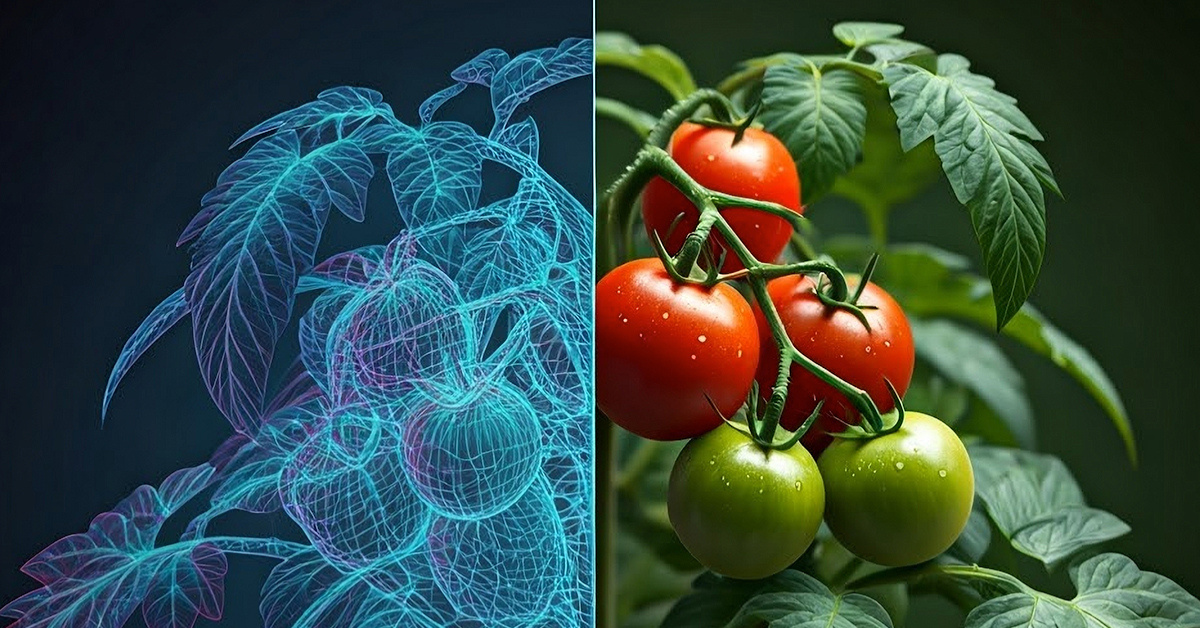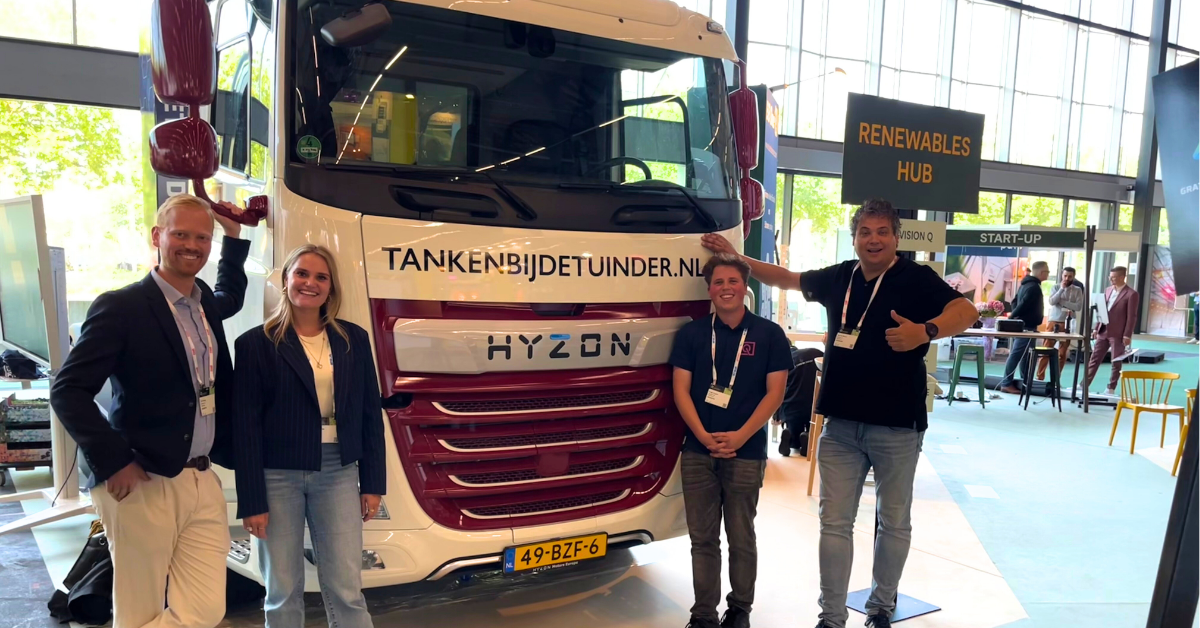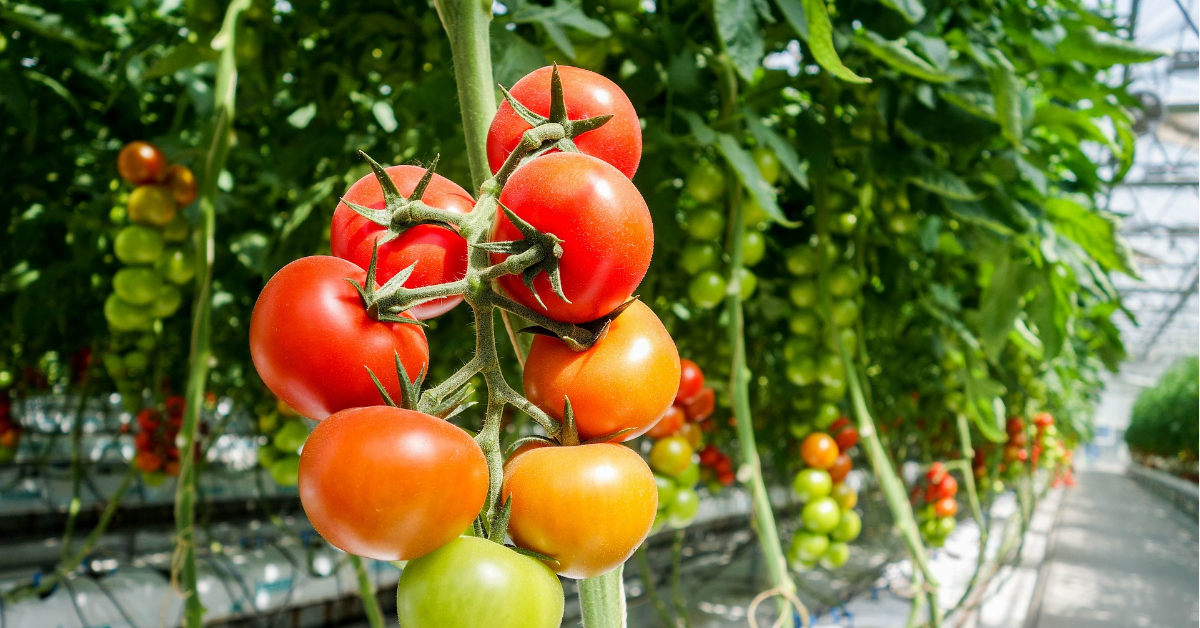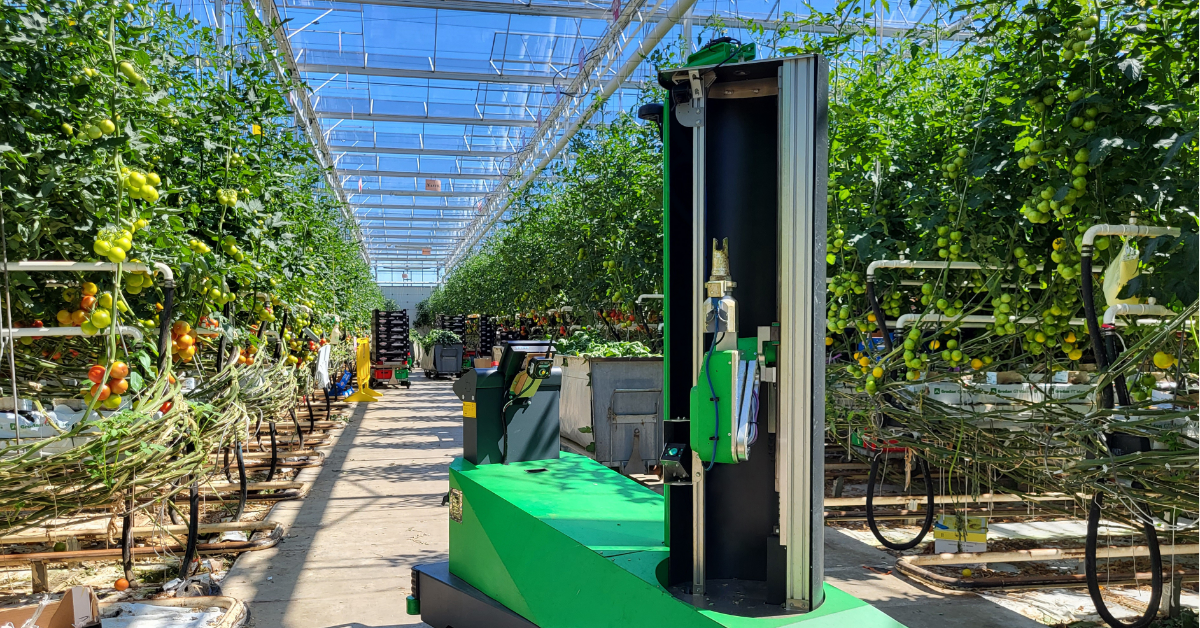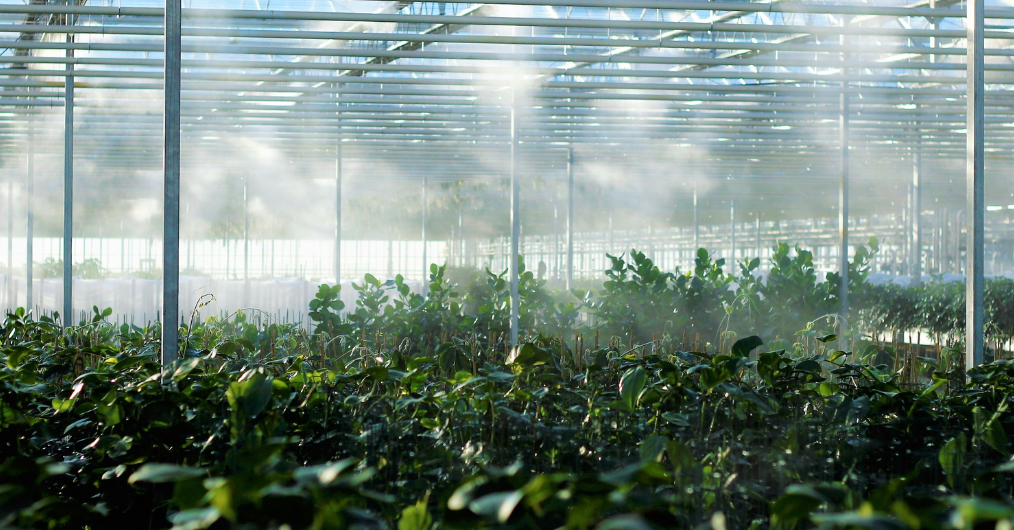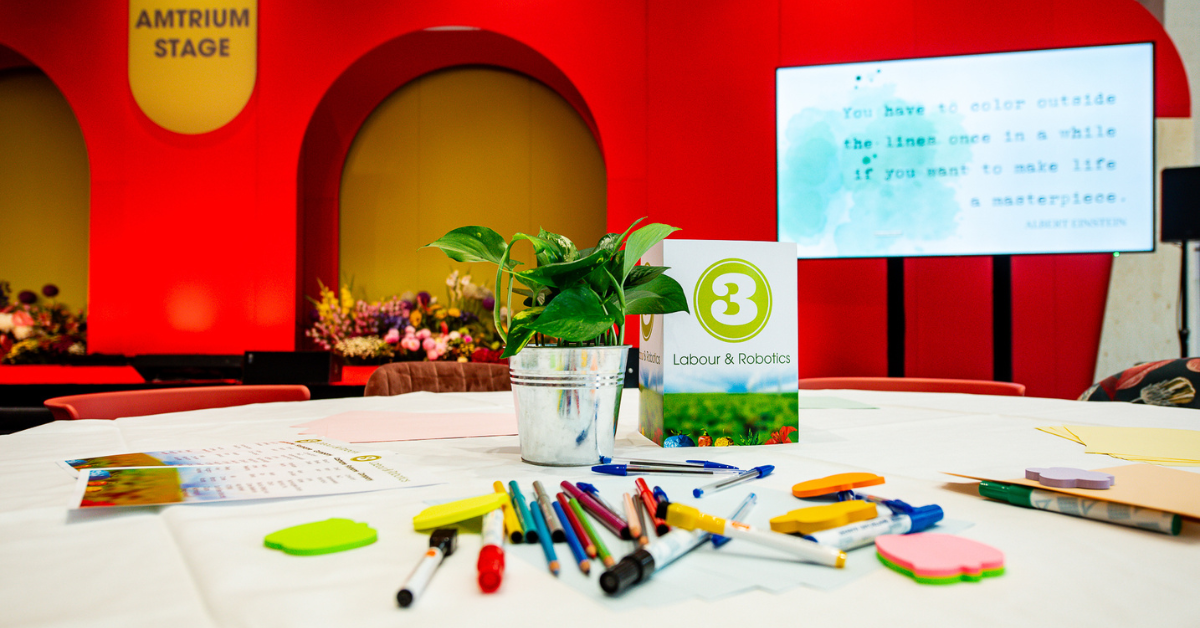Sharing knowledge is multiplying
 Authors: Jacco Strating | Ank van Lier
Authors: Jacco Strating | Ank van LierSharing knowledge; that’s what it is all about during GreenTech Amsterdam in June. Artificial Intelligence, robotization and renewable energy are some of the main themes. Knowledge transfer on these topics takes place through presentations and seminars, but also by showing innovations in the Startup Pavilion. Three participants already give a short preview of what they have to show you in Amsterdam.
ADRI BOM-LEMSTRA, GLASTUINBOUW NEDERLAND:‘Greenhouse horticulture will reap the
benefits of the energy crisis in the long run’
“What if we, as a greenhouse horticultural sector, will soon no longer have any gas at our disposal? That was the key question in recent months," says Adri Bom-Lemstra. The chairman of Glastuinbouw Nederland, the leading entrepreneurial network in the Dutch greenhouse horticulture sector, will give a presentation during GreenTech Amsterdam about the energy supply in greenhouse horticulture and the required energy transition. “It will indeed be a challenge to replenish European gas supplies in time for the coming winter. But there is also good news. An interdepartmental working group led by the Ministry of Economic Affairs has drawn up a plan for scaling down, to determine who should get rid of the gas and when, in the event of a shortage. And greenhouse horticulture is the last to turn, together with consumers. This is thanks to the fact that we also supply electricity back to the grid with our CHPs. So that’s a good thing.”
Nevertheless, Bom-Lemstra emphasizes that the ambition of Dutch horticulture to be energy neutral by 2040 remains intact. This challenge must be achieved on the one hand by saving on gas - through innovative techniques and cultivation methods - and on the other by making the switch to sustainable energy. “You can see that, due to the high gas prices, there has been much more interest in energy-saving techniques. Every grower is looking for ways to save. The concern is that, due to the high energy costs, there is not enough financial scope to invest in innovation.”
At the same time, according to the chairman, there is also more movement within the government. “However, you look at it: in recent years, they have stepped on the brakes in many sustainability projects. We have now submitted a proposal to them about how we, as a greenhouse horticultural sector, can get rid of Russian gas within five years. Projects in the field of geothermal energy, residual heat and aqua thermal energy play a key role in this. The government will have to step in to get these projects off the ground. And luckily, they see that too. In short: the current energy crisis is accelerating the energy transition. And although it may not feel that way now, in due course we will reap the benefits of the current energy crisis as a sector.”
ANTON PAARDEKOOPER, BBBLS ENERGY SAVING GREENHOUSES:‘Reduce energy first, then make it more sustainable’
According to Anton Paardekooper, greenhouse horticulture must become more sustainable and eventually has to get rid of gas. But before efforts are made to make energy sources more sustainable, there must first be looked at how the energy requirement can be reduced as much as possible. That’s what the co-owner of BBBLS Energy Saving Greenhouses strongly believes. “If we don't reduce our energy consumption, we run into other problems. If you then want to make it more sustainable through, for example, geothermal energy, you need very large geothermal sources. This costs an enormous amount of capital and is also difficult in terms of licensing. That is why we have to reverse the order: reduce energy first, then make it more sustainable. That offers the best perspective.”
The startup from The Hague has realized a greenhouse roof system - the so-called BBBLS system - which, according to Paardekooper, can save energy from fifty to eighty percent. The system consists of two layers of ETFE foil, which replace the roof and walls of a regular greenhouse. There is a hollow space between the layers of foil, into which soap bubbles are blown. “This stops the air circulation and improves the insulation value of the greenhouse. Our system insulates a factor of ten better than an ordinary greenhouse. And that logically saves you a lot of energy. There is also a more even and more manageable greenhouse climate, which benefits quality and production. In addition, growers can keep their greenhouse closed for longer and they need to ventilate less. This reduces CO2 consumption and the use of pesticides.”
The system has now been running for three seasons in Norway. In addition, a demo greenhouse will be realized this year at Koppert Cress in Monster. “It is now clear that the system works and we want to scale up further. During GreenTech we will show how our system works in the Startup Pavilion. And we hope to enthuse entrepreneurs to take further steps together with us and to give concrete shape to the energy transition.”
SIMONE KEIJZER, GEARBOX INNOVATIONS:‘Labour dependency poses major business risks’
The availability of labor is one of the biggest issues in greenhouse horticulture. The helm has to change drastically in this regard, says Simone Keijzer of Gearbox. “We cannot continue in the current way. You can already see that it is difficult, but in the long run it will become untenable. The people just aren't there. And if you do have employees, the question is what their qualities and level of education are. This logically entails enormous business risks.”
During GreenTech, Keijzer will give a presentation on how vision technology, robotics and Artificial Intelligence (AI) can help to tackle these challenges. The company Gearbox from Maasdijk combines these things, in order to create 'the horticultural employees of the future'. “We offer solutions that support growth and quality monitoring, in the greenhouse and during packaging. For example, there is the GearRover, for which we also won the Robotization theme prize at the presentation of the Horticultural Entrepreneur Award 2022. This harvest assistant helps to determine whether products are ready for harvest. The GearRover is already being used extensively in rose and gerbera and we are working on further development for other crops.”
According to Keijzer, solutions like that not only help entrepreneurs to become less dependent on labour, but also to work smarter. “Using AI techniques, you generate an enormous amount of data, which provides new insights and helps to make decisions based on objective facts instead of opinions. This is in fact 'by-catch', but a very valuable one. After all, this allows you to take your business operations to the next level.”
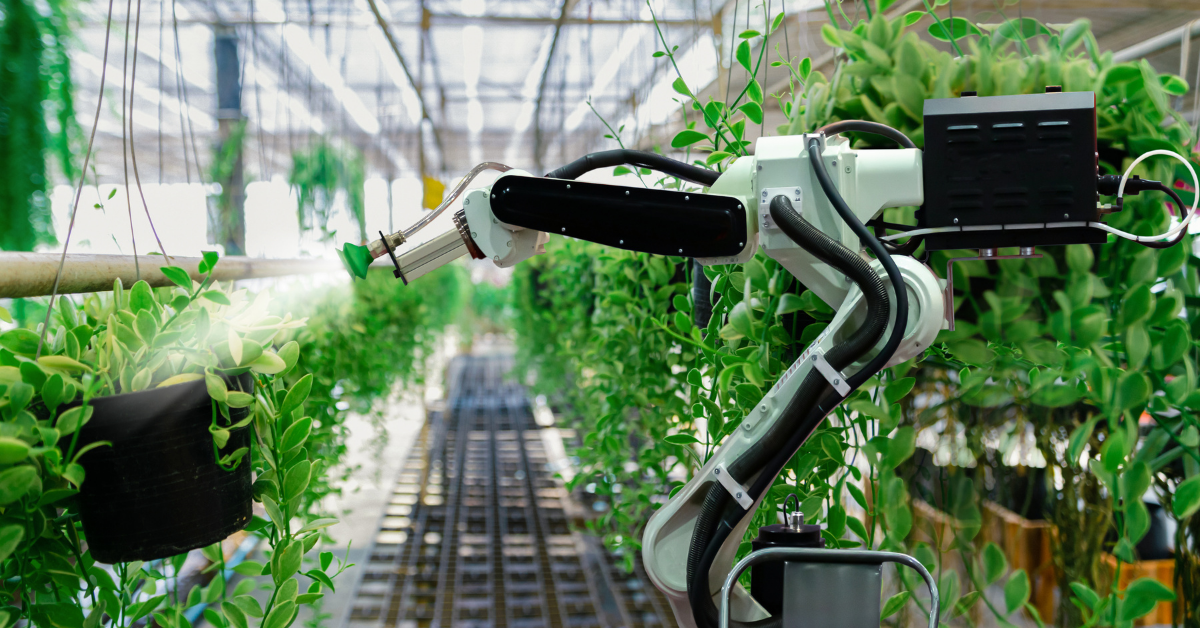
.png?h=628&iar=0&w=1200)
